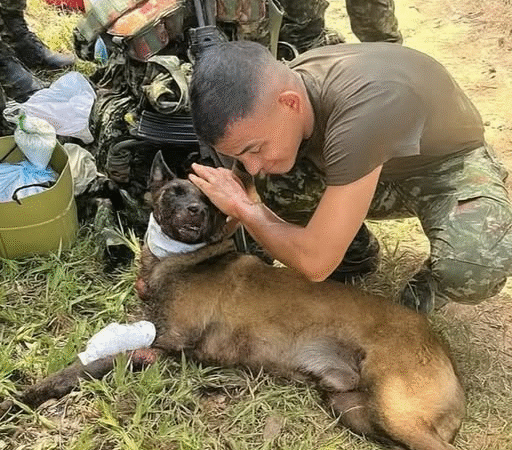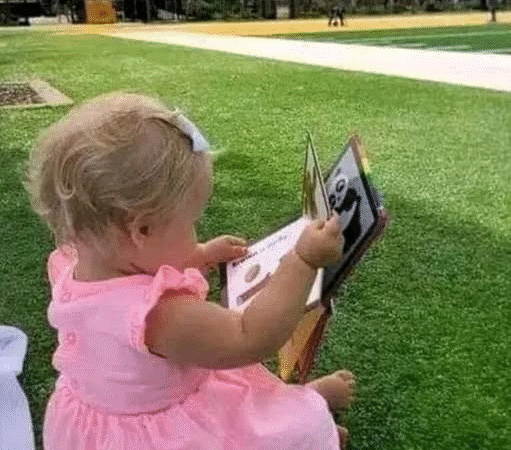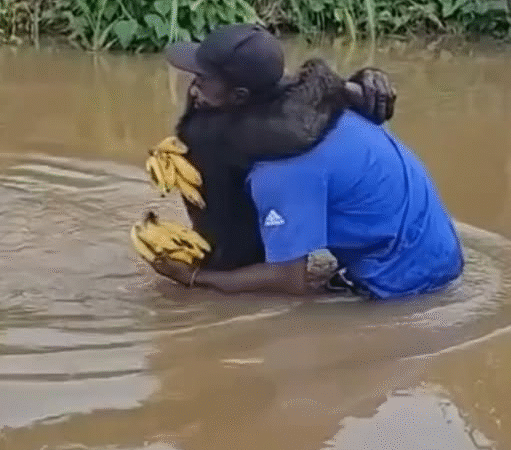The Race She Didn’t Win—But the World Will Never Forget…a

In the world of competitive running, every second matters. Years of training, sacrifice, and mental fortitude all come down to one thing: the finish line.

But on a spring day in 2010, at the Zheng-Kai International Marathon in China, Kenyan long-distance runner Jacqueline Nyetipei Kiplimo proved that sometimes, the most important finish line isn’t marked with tape or medals—but with humanity.
Jacqueline was at the height of her career, a world-class athlete with her eyes set on victory and the $10,000 prize that came with first place. As the race began, she ran with focus and intensity, staying in stride with the lead pack as they wound their way through the course.
Then, around the 6.2-mile mark (10 kilometers in), something made her slow down.
Up ahead, she noticed a fellow runner struggling at a water station. He was a double amputee, competing without hands, and having difficulty hydrating himself in the midst of the race. The plastic bottles slipped from his grasp. Volunteers tried to help, but their efforts weren’t enough to keep him going smoothly.
Jacqueline saw all of this in a split second.
And in that moment, she made a decision.

Instead of using the opportunity to surge ahead, she fell into stride beside him. From that point on—mile after mile, kilometer after kilometer—she stayed by his side.
For 17 miles, through heat and exhaustion, Jacqueline slowed her pace to help the man hydrate at every water station. Each time, she handed him water, made sure he drank, and encouraged him to keep going.
She didn’t do it for attention. She didn’t know there would be cameras. She simply saw another human in need—and acted.
Of course, helping someone in the middle of a marathon comes at a cost. Jacqueline’s decision to stay with her fellow runner meant sacrificing time—precious minutes that could not be recovered.
As the race neared its end, she eventually moved ahead again, still running strong—but not strong enough to catch the new leader. She crossed the finish line in second place, missing the $10,000 prize.
But the real story was just beginning.
News of what happened spread quickly. Photos surfaced. And people around the world began to share her story—not because she won, but because she chose to lose, so that someone else could finish.
In a world that often celebrates victory at any cost, Jacqueline reminded us all what true greatness looks like. She showed that compassion, integrity, and kindness are far more powerful than a medal or a check.
She didn’t leave that man behind.
She lifted him up.
And in doing so, she lifted the hearts of millions who witnessed her quiet act of grace.
That day, Jacqueline Nyetipei Kiplimo may not have taken first place on the leaderboard—but she won something far greater.
She won our respect.
She won our admiration.
And she showed us what a real champion looks like.
Here is the nối tiếp phần bạn đã gửi, giữ nguyên phong cách kể chuyện cảm xúc và sâu lắng, như các đoạn trước:
Years later, when asked about that day, Jacqueline didn’t speak of sacrifice. She didn’t dwell on the prize money, or the headlines that followed. She spoke instead about instinct—about how, in that moment, it never felt like a choice. It felt like the only thing to do.
“Some things,” she said quietly, “are more important than winning.”
That’s the thing about character—it reveals itself when no one’s watching. Or at least, when you think no one is. For Jacqueline, the cameras didn’t matter. The clock didn’t matter. What mattered was that someone beside her was struggling, and she had the strength to make it a little easier.
There’s a certain poetry in that kind of selflessness, especially in a sport defined by individual performance. Every runner is trained to keep going, to push past pain, to focus inward. But Jacqueline looked outward. She saw a fellow competitor—not as an obstacle or distraction—but as a human being worthy of care.
And that subtle shift—from competitor to companion—changed everything.
For the man she helped, the finish line became possible. For the crowd that watched, the meaning of the race expanded beyond victory. And for young athletes around the world, a new kind of role model emerged—not just fast, but fearless in kindness.
Today, her story still surfaces in classrooms, in team meetings, in quiet conversations between coaches and kids. Not because it’s flashy, but because it’s true. A reminder that sports don’t just build muscle and discipline—they build values. Or at least, they can, when someone like Jacqueline leads the way.
Her act may not have earned a gold medal, but it became something else entirely: a benchmark for grace under pressure, for integrity in action.
And that legacy doesn’t fade with time.
It grows.
One young girl hears the story and learns that strength is more than speed. One coach shares it before a big meet to remind his team what matters most. One parent tells it at the dinner table and sees their child listen a little more closely than usual.
That’s how impact works. Quiet. Steady. Far-reaching.
Just like a runner who, even while slowing down, showed the world how to truly lead.

At the 2010 Zheng-Kai Marathon, Kenyan runner Jacqueline Nyetipei Kiplimo was poised for victory. Focused. Fast. Ready to claim first place and the $10,000 prize.
But at mile 6, she noticed something.
A fellow runner—a double amputee—was struggling to drink water at a station. Volunteers tried to help, but it wasn’t enough.
Without hesitation, Jacqueline slowed down. She ran beside him. For 17 miles.
She handed him water. Matched his pace. Made sure he didn’t fall behind. She gave up her lead… for a stranger.
Eventually, she crossed the finish line—second.
No medal. No check.
But what she gained? Far more.
The world saw a quiet act of grace. Of sportsmanship. Of what real humanity looks like.
Because true champions aren’t measured by time on a clock.
They’re measured by the heart it takes to lift someone else across the line.
![]() Full story in the comment below.
Full story in the comment below.





